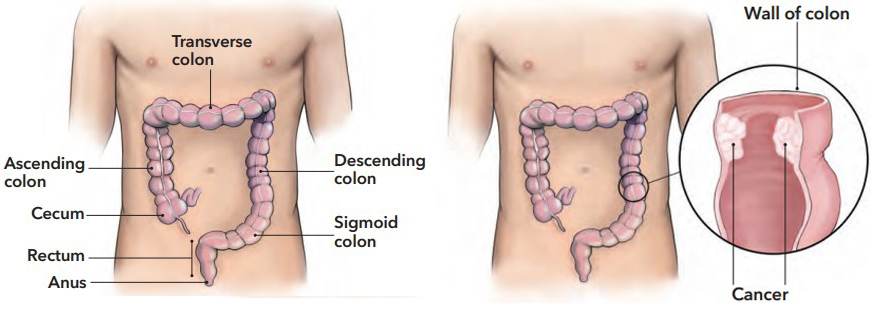National Colorectal Cancer Awareness Month sheds light on new screening guidelines

Source: Kaiser
By Antonia Ehlers, PR and Media Relations, Kaiser Permanente Northern California
Colorectal cancer is the second leading cause of cancer deaths in the United States among men and women combined. With March being Colorectal Cancer Awareness Month, it’s a good time to remind those in your life about the importance of regular screening.
Following recently updated federal guidelines, Kaiser Permanente Northern California is now recommending screening to adults ages 45 to 49. Previously, the recommended screening age was 50 for adults who are at average risk for colorectal cancer.
“These new guidelines are important because younger people are getting colon cancer more often,” said Theodore Levin, MD, a gastroenterologist at the Kaiser Permanente Walnut Creek Medical Center. “Today, we have more options. A patient can have a colonoscopy or the at-home fecal immunochemical test.”
According to Levin, the increase in cases in younger patients has been linked to obesity, antibiotic use, and sweetened sodas and sports drinks.
Kaiser Permanente is expanding its easy to use, at-home colorectal cancer screening program to members age 45 and older following a nationwide increase in deaths of people under age 50. The fecal immunochemical test (FIT) for colon and rectal cancer is mailed annually to members’ homes, free of charge.
Colorectal cancer symptoms include rectal bleeding, abdominal pain, a change in bowel habits and unexplained weight loss. The FIT test checks for hidden blood in a patient’s stool, which could be a sign of cancer or benign colorectal polyps.
If a test is positive, a colonoscopy is ordered to examine the inner lining of the colon and rectum for signs of cancerous or pre-cancerous growths.
According to Jeffrey Fox, MD, chair of Gastroenterology for The Permanente Medical Group in Northern California, Kaiser Permanente’s home screening test has lowered colorectal cancer deaths by 50 percent among its members during the past two decades.
“We estimate that our members have a 30 percent less risk of death from colorectal cancer than non-members in part because of this testing program,” he said.
Dr. Fox also noted that in addition to reducing deaths through use of the test among all members, Kaiser Permanente Northern California also has drastically reduced the rate of colorectal cancer among Black members. Targeted testing outreach over the last 10 years has brought the rate down from 54.2 per 100,000 to 21 per 100,000, which now is the same rate as white members.
the attachments to this post:





















